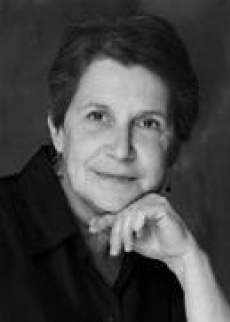
Email: EllaTournes@bexleygs.co.uk
Total Article : 45
About Me:Sixth form student currently studying English Literature, Drama and Theatre Studies, Classical Civilisation and History.

In ‘Brave New World’, the fate of Lenina and John’s relationship gives Huxley’s final message; one that is inadvertently related to gender. John’s suicide is revealed to the reader by the phrase ‘Slowly, very slowly, like two unhurried compass needles, the feet turned towards the right; north, north-east…’. In comparing John’s feet to ‘compass needles’, Huxley perhaps alludes to John’s role as the moral compass of the book. The defeat in the suicide of this ‘moral compass’ is arguably a result of giving in sexually to Lenina (or perhaps, another woman like her) during the orgy alluded to at the end of the book. Throughout the book, Huxley projects the idea of the ‘noble Savage’ being tempted by Lenina. Lenina is sexually liberated in many ways – she has free choice of partner, she is allowed to use her body more or less as she pleases, she has access to ‘contraceptive precautions’ (which, in 1932 is an impressive use of foresight from Huxley to the contraceptive pill invented in 1960). However, the result of this sexual liberation is, perhaps, that she gives into the temptation of sex, and she, in turn, tempts John the Savage. When John is tempted by Lenina, he reprimands himself – he thinks ‘Detestable thought! He was ashamed of himself. Pure and vestal modesty….’. The self-flagellating attitude that John takes towards his sexual feelings towards Lenina, and the old-fashioned attitude he takes towards sexuality, seen through the use of the phrase ‘pure and vestal modesty’ (‘vestal’ being an allusion to purity and virginity, commonly used in the writings of Shakespeare), leads the reader to see Lenina as John’s ‘forbidden fruit’; she tempts in in an almost biblical sense. The ultimate destruction of John the Savage bears clear links to the story of Adam and Eve – it is woman who gives into the temptation of sex, it is woman who stops the growth of the ideal world. This link between Lenina and Eve presents an extremely old-fashioned way of thinking on Huxley’s part, that is deeply misogynistic.
In conclusion, although Orwell has more of a sensitivity to gender, and uses it in ‘Nineteen Eighty-Four, his novel is still misogynistic in places. There is a large emphasis placed on patriarchal values – masculinity is revered and respected, both by Orwell, and by the structure of the society of Oceania. Huxley doesn’t emphasise gender – in fact, he almost ignores it the way he presents women; women are used as devices, as accessories to the more important, male protagonists. Both novels are inherently andocentric, but in different ways – Orwell consciously puts an emphasis on the importance of males and being manly, whereas Huxley seems to take men being at the centre of society as default. Both authors seem to have an issue with consistency when it comes to writing women – Huxley’s presentation of Lenina is confused and, at times, doesn’t make sense; is she a rebel, or does she epitomise everything that is bad about the society of the ‘Brave New World’? Orwell has little breakthroughs of feminism, especially through his description of the singing prole woman, and his elevation of mothers, but at times his description of woman is that of a disgusted misogynist. The authors’ inconsistency is arguably reflective of the time in which they were writing. Patai argues that ‘Women are clearly ‘other’ in the world of 1984, as they are in Orwell’s own society, and Winston relates to them as such’[1]. The concept of women being ‘other’ to Orwell and Huxley is, in my opinion, the most integral factor in exploring how both the novels present gender. I don’t believe that either author sets out to portray women unfavourably – they simply don’t understand the perspective of women. Both Orwell and Huxley experienced societies that didn’t project a female narrative – women didn’t have a public voice in the same way men did, in early 20th century England. The novels are flawed in the fact that the omniscience of the narrators don’t reach the female characters – the narrator, who can only really be Huxley or Orwell, is not all-knowing when it comes to women. Arguably, one can only truly know what one has experienced, and all Orwell and Huxley have experienced in a male perspective. Women, and the female perspective, are alien to both Huxley and Orwell – that is why gender is not presented in a holistic or realistic manner, in either ‘Nineteen Eighty-Four’ or ‘Brave New World’.
[1] ‘Gamesmanship and Andocentrism in 1984’ by Daphne Patai
Source: https://www.google.co.uk/search?q=lenina+crowne&espv=2&biw=1093&bih=490&source=lnms&tbm=isch&sa=X&ved=0ahUKEwju28Dpl8nQAhUEIcAKHY8CB4MQ_AUIBigB#tbm=isch&q=daphne+patai&imgrc=AGqkqoa8U3RwCM%3A

0 Comment:
Be the first one to comment on this article.